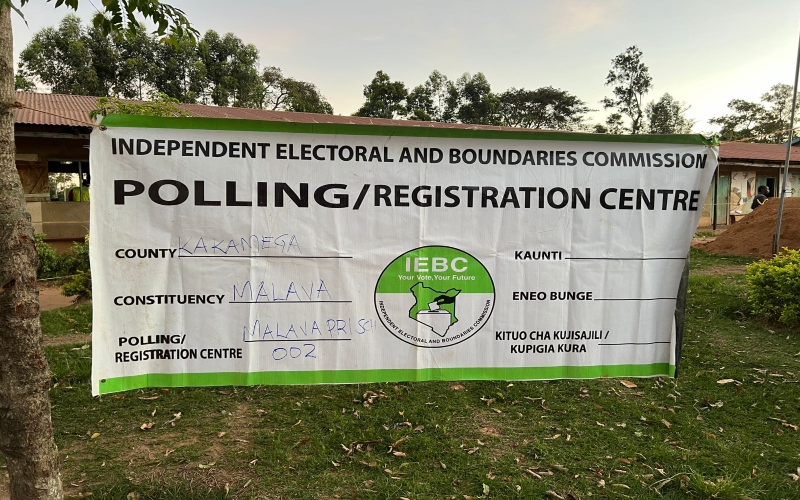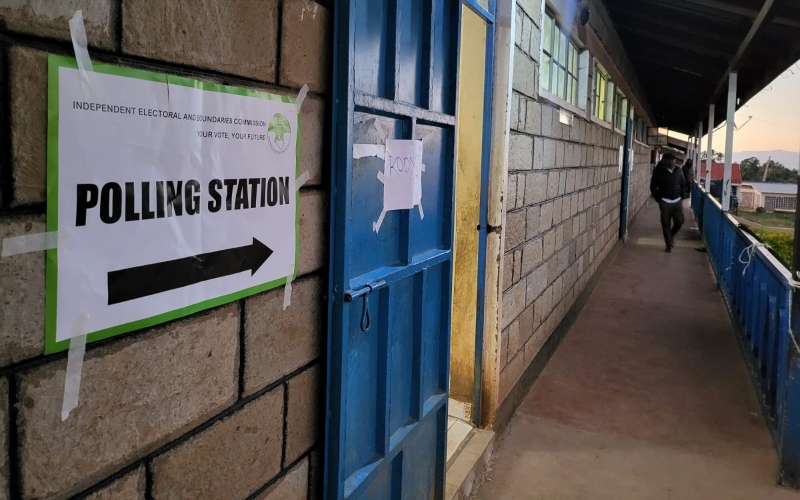Karua accuses AU of double standards over Guinea-Bissau coup, Tanzania election crisis

Karua argued that the AU has taken no action against Samia’s administration despite detailed reports by SADC and AU observers flagging major issues in the violent October 29 elections.
People’s Liberation Party (PLP) leader Martha Karua has criticised the African Union (AU) for swiftly condemning the military takeover in Guinea-Bissau while allegedly ignoring serious election irregularities in Tanzania.
Karua argued that the AU has taken no action against Tanzanian President Samia Suluhu’s administration despite detailed reports by the Southern African Development Community (SADC) and AU observers flagging major issues in the violent October 29 elections.
More To Read
- Guinea-Bissau military appoints Gen Horta N’Ta as transitional leader after coup
- Tanzanian authorities orders petrol stations to limit fuel sales to boda bodas, tuk-tuks ahead of planned December 9 protest
- ICC urged to probe Tanzania over post-election civilian killings
- Tanzania opposition leader Lissu accuses President Samia of ignoring electoral reforms, fuelling violence amid political crisis
- US Senate Committee on Foreign Relations calls for probe into Tanzania election violence
- Tanzania cancels Independence Day celebrations amid outrage over alleged killings
“African Union Commission Chairperson Mahmoud Ali Youssouf [is] so quick to condemn the military coup in Guinea Bissau, while tolerating an audacious and bloody power grab by Samia Suluhu even after damning report by SADC observers and AUC observers,” Karua wrote on X.
Her comments followed the AU’s condemnation of the November 26 military coup in Guinea-Bissau, which occurred as the country prepared to announce the results of the presidential vote held the previous Sunday.
In a statement, Youssouf reaffirmed the AU’s “zero tolerance and unequivocal rejection of any unconstitutional change of government,” calling for the immediate release of President Umaro Sissoco Embaló and other detained officials.
Suspended electoral process
Earlier, a group of army officers had suspended the electoral process, saying they were taking control “until further notice.”
“The Chairperson of the African Union Commission, H.E. Mahmoud Ali Youssouf, unequivocally condemns the military coup d’état that took place in the Republic of Guinea-Bissau on 26 November 2025, resulting in the arrest of President Umaro Sissoco Embaló, senior officials, and political leaders, at a moment when the nation was on the verge of the announcement of its electoral results,” the AU said.
Youssouf cited several AU instruments—including the Constitutive Act, the Lomé Declaration, the African Charter on Democracy, Elections and Governance, and the Ezulwini Framework—in restating the AU’s position.
Despite this firm response to Guinea-Bissau, the AU publicly endorsed Tanzania’s President Samia Suluhu after she was declared the winner of the November 1 election with 97.66 per cent of the vote amid violent protests and widespread unrest.
Youssouf later acknowledged the deaths that occurred after the polls and urged Tanzanians to remain calm.
“The chairperson deeply regrets the loss of human life during the post-electoral protests and extends his sincere condolences to the families of the victims,” the AU said in a statement.
He added that the AU is ready to support Tanzania in maintaining peace, cohesion and democracy, and emphasised the need to protect fundamental freedoms, including peaceful assembly and expression.
Severe irregularities in Tanzania
SADC observers reported severe irregularities during Tanzania’s elections, noting that they struggled to access key stakeholders such as the Independent National Electoral Commission (INEC) and were subjected to security interrogations. They also said their documents were seized temporarily, and they were forced to delete mission-related photos.
On election day, media coverage was more restricted than in previous elections, with some private outlets self-censoring out of fear of state reprisals.
“It is the SEOM’s tentative conclusion that, in most areas, voters could not express their democratic will. Overall, the 2025 General Election in the United Republic of Tanzania fell short of the requirements of the SADC Principles and Guidelines Governing Democratic Elections,” SADC said.
The SADC mission deployed 27 teams across 27 of Tanzania’s 31 regions, representing 10 member states including Eswatini, Lesotho, Botswana, Namibia, Malawi, Mozambique, Seychelles, South Africa, Zambia and Zimbabwe.
Despite protests, internet restrictions, and opposition claims that the election was a “sham,” Samia Suluhu was sworn in at the State House in Dodoma, with Emmanuel Nchimbi becoming her deputy.
The opposition party Chadema has rejected the results and continues to demand fresh elections. The electoral commission maintains that Suluhu won 98 per cent of the vote.
Top Stories Today















































